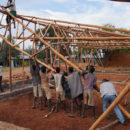Is Kenya facing a security meltdown? – By Jeremy Lind

 Turkana, Kenya’s poorest county, is once again experiencing a spate of violence. The situation in Turkana, and Kenya more widely has become so bad, that John Githongo, a highly esteemed whistle-blower of regime malfeasance, has called it a “security meltdown… unprecedented in Kenya’s independent history”.
Turkana, Kenya’s poorest county, is once again experiencing a spate of violence. The situation in Turkana, and Kenya more widely has become so bad, that John Githongo, a highly esteemed whistle-blower of regime malfeasance, has called it a “security meltdown… unprecedented in Kenya’s independent history”.
Writing in the Star, Githongo suggests that collapsing public confidence in Kenya’s internal security apparatus has in part been driven by the government’s mishandling of badly needed security and policing reforms. Instead of following through on reforms that should have come after Kenya’s successful 2010 plebiscite, President Uhuru Kenyatta has, instead, increasingly turned to the military to address violence. Githongo notes that Kenya has descended into the absurd, where most Kenyans simply shrug at high levels of violence, disappearances and the creeping militarisation of security responses.
So, too, has insecurity in Turkana reached new levels of absurdity. In Kapedo on Turkana’s southern border, over 20 administrative police as well as civilians were killed in an ambush earlier this month carried out by a heavily armed group of fighters from neighbouring West Pokot. Mourners and security officials who attended the funeral for the first victims to be laid to rest were themselves ambushed on returning home. Kapedo remains closed off, with a media blackout on the ongoing military operation to flush out and track down those who were responsible.
Following this attack, and others, the MP for Turkana South, James Lomenen, called on the government to intensify its war against insecurity, claiming “local political leaders and administrators are often aware of planned attacks and should help in the investigations”.
The state has done little to respond
However, the state has failed to respond decisively to chronic violent insecurity that has plagued Turkana peoples for decades. Southern Turkana suffered devastating losses to Pokot raiders throughout the 1970s and, despite the establishment of a Turkana Home Guard to defend both life and property, patterns of raiding have persisted and continue up to this day.
Yet raiding is only one aspect of violence that happens in Kenya’s deeply insecure northern counties. Much of the violence is actually rooted in structures, relations and change in pastoral economies that are undergoing rapid transformation as the country’s northern margins are increasingly penetrated by various forms of capital and subsumed in ever complicated governance arrangements.
Against a backdrop of worsening violence, new county-level governments are benefitting from a windfall of public resources that have poured into the region under Kenya’s new devolved system of government. In fact, devolution has raised the stakes for county-level political-administrative positions, and at least some of the violence seen relates to contestations for local supremacy and power.
The region is also benefitting from an influx of recent private investment, including expanding oil exploration activities in southern Turkana, raising the spectre of a whole host of new tensions arising from people’s expectations for jobs, contracts and greater economic opportunities.
Uneven security responses erodes trust
For the moment, private investors seem undeterred by northern Kenya’s chronic violence. In an article for the American Anthropologist, James Ferguson describes investments around mining and oil extraction across Africa as being “concentrated in secured enclaves, often with little or no economic benefit to the wider society.” He adds, that “there is an increasing acceptance of the idea that effective mineral production and endemic violence can coexist.”
Northern Kenya’s oil finds are highly important to Kenya’s regime and their backers amongst the military and in global capital. Yet, investments do not necessarily translate into large numbers of new jobs or greater entrepreneurship opportunities for local people. Last year, Tullow Oil, a British-Irish oil firm, suspended operations in south Turkana following demonstrations that Lomenen led over access to jobs and tenders. Although the company resumed operations following an agreement with local leaders, it was announced earlier this year that the Kenya Defence Forces would establish a military base adjacent to its operations.
And, yet, where there is a security response, there is little confidence that it is actually trying to address locally-felt insecurities. Some Turkana voice concern that while the state is quick to respond to protests around oil exploration activities, it does not respond quickly to raids and other incidents of insecurity that threaten lives and livelihoods. As one observer of the region shared with me, many Turkana she spoke with were telling her:
“When we are getting killed and having our livelihood taken from us, you can’t help us, but then when we protest for a few hours, you show up and arrest some of us!”
Thus, Kenya confronts a crisis not only in its spiralling insecurity, but also in weakening public confidence in its security structures. Militarising internal security responses may speak to immediate public appetite for a robust response to worsening violence. But in the long term it will not repair the breakdown in public trust, which has happened over a long period, and may in fact diminish confidence. A rethink of security strategy and reform of internal security structures and policing is urgently needed.
Jeremy Lind is a Research Fellow at the Institute of Development Studies. He is leading a new project investigating the impacts of large new “˜development’ investments on peace-building and conflict dynamics in Kenya’s north.






